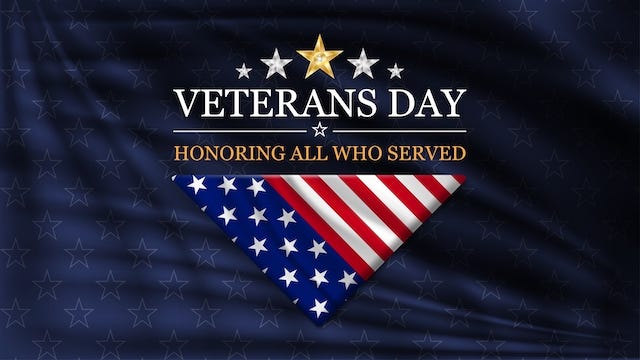“There is nothing stronger than the heart of a volunteer.” General Jimmy Doolittle
The Service Corps of Retired Executives (SCORE) defines a value proposition for a business as a promise of something to be delivered. Value propositions can describe how, what a business sells or the service it provides is different and better than the competition. While we often think of value propositions in terms of what is sold or serviced, I like to think beyond that. Indeed, I’ll pose this question often when contemplating decisions in my personal and professional life – “what is the value prop?” I think of value proposition when hiring employees. “What will this person bring to my team?” “What skills, character, values, etc. will this person deliver to help my organization improve and grow?”
Not all veterans are the same. This is true for every person of every background and qualification; therefore, it is incumbent for leaders to do the proper vetting when selecting new teammates. I speak with transitioning service members weekly. Their next job is typically at the center of the conversation. “I know exactly what I am getting if I hire you, but your potential employer will not,” I’ll share as we talk about the challenges of finding fulfilling employment in their ‘encore’ life. I’ll now share the value proposition of a military veteran. I’ll generalize here, stereotype even, but I do so only to make the point of ‘what you get’ when you hire a veteran. And when I say veteran, I’m also referring to their amazing spouses. Military spouses serve too, and what I share here apples to them. These are in no specific order.
Problem Solving. In the military we are tossed problems every day. There is a saying that the Army is good at combat because combat is chaos and the Army practices chaos daily. No matter what the service, there is a formal process for understanding and solving problems – big hairy complex problems. A problem which may frighten, even stifle a non-veteran, may come naturally to a military veteran in your company.
Leadership. A business, for the most part, solves problems with money. It may hire a consultant or subscribe to an automated application to address its challenges. The military solves problems through leadership. It will find leaders across the chain to ‘take charge’ using limited resources and the influence of their leadership to inspire and motivate people. Whether the veteran has served several years or only a few, they come from an organization which teaches leadership and practices it in the toughest environments – training and combat. Vet them for sure, but you can bet that they will be ready to lead on day one.
Values, Character, Code. As young men and women volunteer for and enter military service, they are stripped of their individuality. They become Soldiers, Sailors, Airmen, Marines, or Coastguardsmen and women serving a cause greater than themselves. In this remarkable transformation they are imbued with the values – duty, selflessness, respect (to name a few) of their profession. They are taught and tested on character – of being upstanding individuals and teammates in a profession where the mission is everything and the lives of their buddies left, and right are at stake. They develop codes such as “mission first, people always,” or “never leave a fallen comrade,” which guide them in all that they do. These values, character, and code will be woven into every fiber of their being, and they will espouse them on all that they do, even after they transition from service.
Indeed, any employer would want a person who could problem solve and lead. They would want a person of character who thought not of themselves but of the mission and the greater team. The value proposition of a military veteran is a promise to deliver these things. It is a competitive advantage veterans have – an enduring benefit of their military service. Veterans do not walk the earth believing they are above non-veterans. They need non-veterans who bring their own value proposition – a deeper network, the language of their non-military profession, and in some cases, education to help them as they navigate a profound change in their lives.
Look to the veterans in your organization for what I have described here. Look outward to find veterans to serve (not work) on your team. The value proposition is strong, and your company deserves it!
Make it Personal!
Rob





